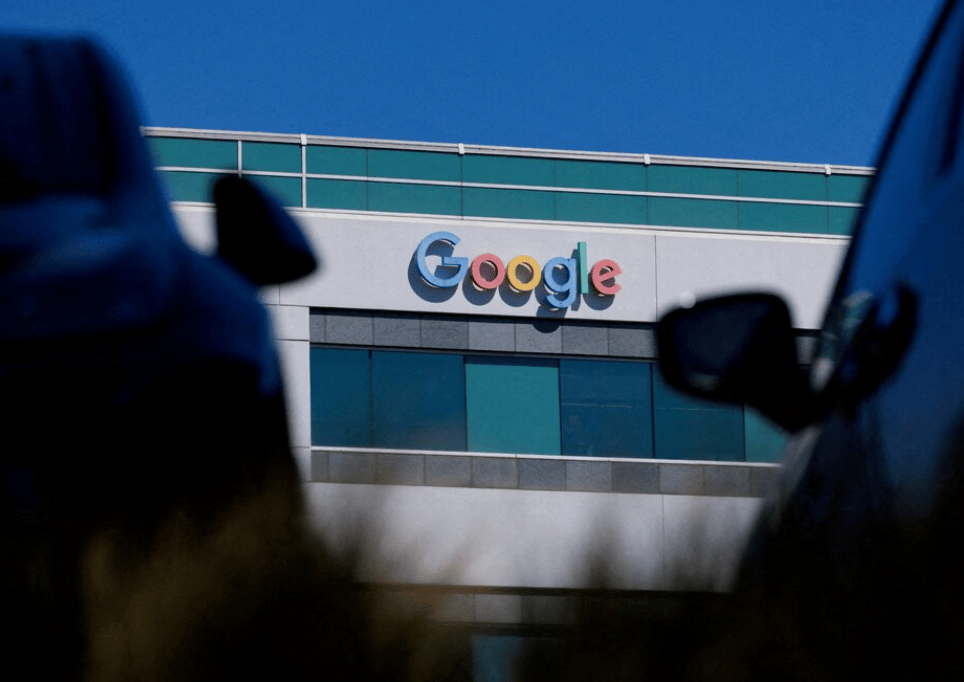- Roko's Basilisk
- Posts
- Big Tech’s Privacy Crisis
Big Tech’s Privacy Crisis
Plus: AI hits London streets, Viven redefines work, and Sora gets approval.
Here’s what’s on our plate today:
🧠 Google’s $1.38B privacy settlement and what it means for Big Tech.
📰 AI coworker twins, Sora’s greenlight, Waymo in London.
✅ Google’s legal exposure, privacy UX, and federal law pressure.
🗳️ Should companies be allowed to collect biometric data by default?
Let’s dive in. No floaties needed…

Lead confidently with Memorandum’s cutting-edge insights.
Memorandum distills the day’s most pressing tech stories into one concise, easy-to-digest bulletin, empowering you to make swift, informed decisions in a rapidly shifting landscape.
Whether it’s AI breakthroughs, new startup funding, or broader market disruptions, Memorandum gathers the crucial details you need. Stay current, save time, and enjoy expert insights delivered straight to your inbox.
Streamline your daily routine with the knowledge that helps you maintain a competitive edge.
*This is sponsored content

The Laboratory
Why Google agreed to pay $1.38 billion to Texas over data privacy violations
Google recently unveiled a redesigned logo for the first time in nearly a decade. With enhanced gradients, balanced proportions, and a more modern aesthetic, the updated logo has already appeared in the iOS version of the Google app, with plans to expand to Android and other platforms soon.
But as the company refreshed its visual identity, it was simultaneously facing headlines that had nothing to do with design—and everything to do with data. Google agreed to pay the U.S. state of Texas a staggering $1.38 billion to settle two lawsuits alleging serious violations of privacy laws. While Google has been involved in previous settlements, this case stands out not only for its enormous sum but also for what it reveals about the company’s data practices and the rising power of state-led privacy enforcement.
This case could redefine how Big Tech handles biometric and personal data in the years to come.
What were the lawsuits about?
Filed in 2022, the lawsuits accused Google of unlawfully collecting biometric data, including users' facial geometry and voiceprints, without proper consent. One lawsuit targeted Google’s practices surrounding the capture and storage of biometric identifiers. The second focused on the company’s location tracking behavior, alleging that users were misled into believing they had disabled tracking when Google continued to gather their data in the background.
In addition, the lawsuits accused Google of using deceptive user interface design—often referred to as "dark patterns"—to subtly manipulate users into providing access to sensitive information. By obscuring privacy settings or presenting choices in misleading ways, the company allegedly collected and retained user data under the guise of user consent.
The suits also addressed concerns with Incognito mode in Chrome, which was advertised as a private browsing feature but allegedly continued to collect some data in ways users did not expect.
Taken together, the accusations painted a picture of a company using misleading methods to extract valuable personal information, primarily to fuel its targeted advertising business.
Who filed the lawsuits?
The lawsuits were brought by Texas Attorney General Ken Paxton, who has gained national attention for taking an aggressive stance against Big Tech companies. He has consistently used state-level antitrust and consumer protection laws to pursue investigations into how technology giants handle user data.
Paxton was also behind the 2024 case against Meta Platforms Inc. (formerly Facebook), which ended in a $1.4 billion settlement—at the time, the largest privacy-related payout ever obtained by a single state. In both the Meta and Google cases, the lawsuits were grounded in Texas statutes: the Capture or Use of Biometric Identifier Act (CUBI) and the Deceptive Trade Practices Act.
These laws were central to Texas’s claim that Google had failed to provide adequate notice, misled users, and collected personal data without proper legal consent.
Does Texas have stricter privacy laws than other states?
Texas is among a small number of states with robust biometric privacy laws, and it has taken an increasingly assertive approach to enforcement. Under the CUBI Act, companies must inform users and obtain consent before collecting biometric data such as fingerprints, facial geometry, retina scans, or voiceprints. The law also prohibits companies from selling or disclosing such data and requires them to destroy it after a certain period.
Unlike Illinois, whose Biometric Information Privacy Act allows individuals to file lawsuits directly, Texas limits enforcement to the Attorney General. Despite this, the state has arguably been more aggressive in prosecuting privacy violations than many others, using its legal tools to challenge companies over data collection, manipulation, and monetization.
States like California and Washington also have strong privacy frameworks, but few have used them as effectively as Texas has in recent years.
What is the impact of the settlement?
The $1.38 billion settlement may not cripple Google financially, but it represents a powerful legal and symbolic blow. The case sets a precedent that could inspire more state attorneys general to pursue similar actions. It also reinforces the idea that deceptive design, misleading consent flows, and unauthorized data retention can lead to significant legal consequences.
The settlement could be referenced in ongoing federal and state litigation, including class actions over Google Inc.’s Incognito mode and other data practices. It could weaken the company's legal position in future cases and increase the pressure on Google to reform its user interfaces and data consent processes.
Beyond the courtroom, the case signals to the tech industry that the era of vague privacy disclosures and aggressive data harvesting may be coming to an end.
What does this mean for other tech firms?
The message from Texas resonates across Silicon Valley and beyond. The lawsuit’s scale and success show that state regulators are not afraid to go after the most powerful companies in the world, and that privacy violations can no longer be dismissed as the cost of doing business.
Other companies, including Amazon, Apple, Meta, and TikTok, are likely reviewing their privacy practices with renewed urgency. Amazon has already faced criticism over how its Ring and Alexa devices handle audio and video data. Meta continues to deal with fallout from previous data misuse scandals. TikTok, too, is under investigation for how it stores and transfers data—especially related to minors.
What this means is that regulatory scrutiny is no longer theoretical. It is here, it is aggressive, and it is expensive. Companies that rely on biometric, behavioral, or location data to serve ads or develop AI models now face an evolving legal landscape with serious financial risks.
Could this lead to a federal privacy law?
The United States currently lacks a comprehensive federal privacy law, which has allowed a patchwork of state laws to fill the void. The Texas case strengthens the argument that a uniform national standard is urgently needed—not only to protect consumers but also to provide clarity for businesses.
A federal privacy law could include rules around informed consent, bans on dark patterns, standards for biometric data collection, and potential rights for individuals to take action against companies. Lawmakers have introduced proposals like the American Data Privacy and Protection Act, but none have yet passed.
This latest settlement may provide the momentum needed to move national legislation forward. As more states pursue enforcement and more companies face billion-dollar penalties, Congress may be compelled to step in.
The bigger picture: a turning point for Big Tech
What began as two state-level lawsuits has become a flashpoint in the global conversation about digital rights. The Google-Texas settlement represents a shift in the balance of power between regulators and tech companies. It challenges the idea that these corporations can set their own privacy standards without oversight or consequence.
State attorneys general are proving they can lead where federal agencies have been slow to act. Courts are increasingly willing to scrutinize dark patterns, vague consent language, and passive data collection. And users are becoming more aware of how their personal information is being used, traded, and profited from.
Google’s logo may look new, but its business practices are under a very old microscope. The days of harvesting data without meaningful consent are numbered. If companies don’t adapt, they may find themselves not just settling cases but being reshaped by them.
TL;DR
Google will pay $1.38B to Texas over privacy violations.
Lawsuits revealed deceptive tracking, dark patterns, and misuse of Incognito mode.
Biometric data collection without consent was central to the case.
The settlement may accelerate stricter regulation—and inspire more state crackdowns.


From prototype to production, faster.
AI outcomes depend on the team behind them. Athyna connects you with professionals who deliver—not just interview well.
We source globally, vet rigorously, and match fast. From production-ready engineers to strategic minds, we build teams that actually ship. Get hiring support without the usual hiring drag.
*This is sponsored content

Headlines You Actually Need
Your AI Coworker Will See You Now: The Eightfold founders just raised $35M for Viven, a digital twin startup that lets teams query virtual stand-ins for unavailable colleagues.
Japan Greenlights OpenAI’s Sora: Japan’s government will allow OpenAI’s text-to-video tool to operate under limited conditions—marking a global regulatory first.
Waymo to Launch in London: Alphabet’s driverless taxi unit will hit London streets in 2026, expanding its autonomous footprint beyond the U.S. for the first time.
Friday Poll
🗳️ Should companies be allowed to collect biometric data by default, as long as it’s anonymized? |

Weekend To-Do
Check your privacy settings — Are your app permissions and location data sharing what you think they are? Probably not.
Audit your browser habits — Incognito ≠ invisible. Try privacy-focused tools like Brave or Firefox containers.
Explore dark patterns — This interactive site breaks down how UI tricks manipulate your consent.

Rate This Edition
What did you think of today's email? |





